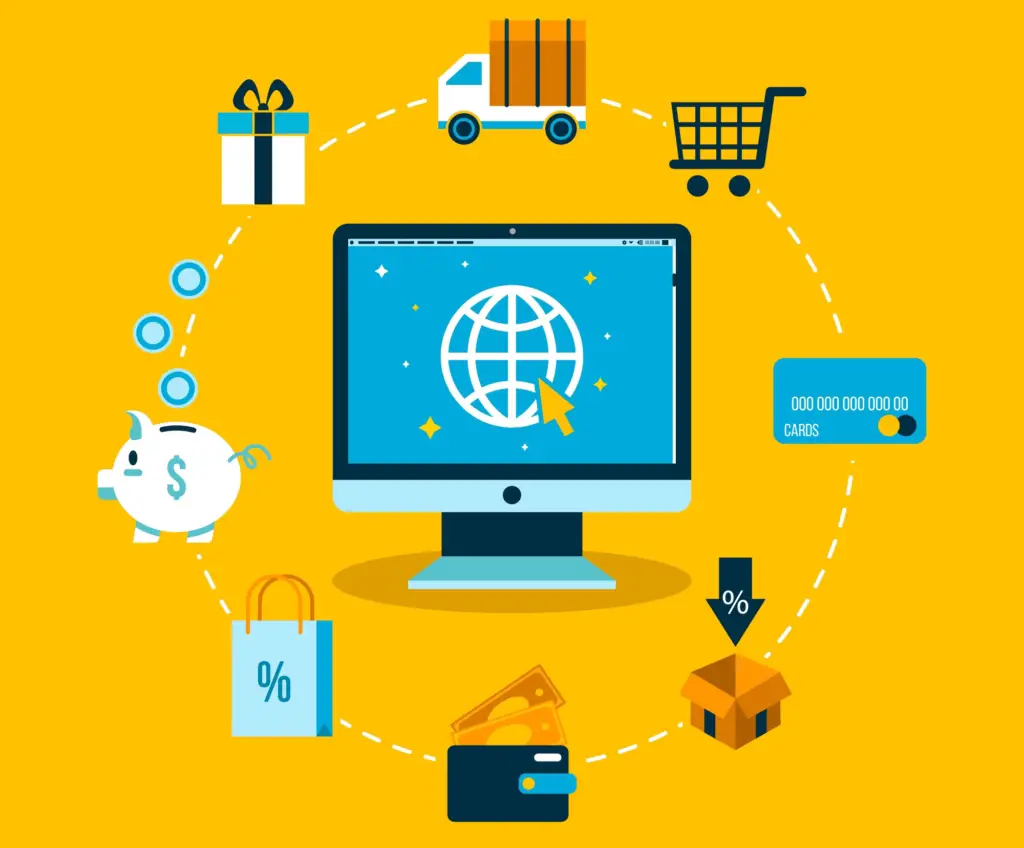
Global e-commerce sales are expected to reach $6.4 trillion by 2024. At the same time, retailers are facing challenges such as inefficient processes and increasing environmental regulations. Packaging and supply chains are particularly resource-intensive. With targeted measures, companies can combine efficiency and sustainability.
Marketing: Increasing efficiency for small businesses
Marketing is crucial in e-commerce, but often a cost driver. Small businesses in particular face the challenge of effectively reaching customers with a limited budget. They often fail due to unsuitable strategies or inefficient implementation. Yet digital marketing offers enormous opportunities. Groups on platforms like Facebook make it possible to reach specific target groups. According to a study by Harvard Business Review, well-managed Facebook groups increase customer loyalty by up to 80%.
Small businesses in particular benefit from low-cost options such as social media campaigns or influencer partnerships. Instead of broad distribution, personalized approaches are more effective. Email marketing remains one of the most efficient methods, generating an average of $42 in revenue for every dollar invested.
Tip: Digital solutions for effective marketing
Using tools like Google Ads or Meta Business Suite makes automation easier. Campaigns can be optimized based on data to minimize waste coverage. For small e-commerce shops, SEO measures are a sustainable approach to generating organic traffic in the long term. Storytelling and emotional content further promote customer loyalty.
Shipping: Focus on automation and sustainability
Efficient shipping processes are at the heart of every e-commerce business. Customers expect fast deliveries, but these have an impact on the environment. Automation in warehousing and shipping not only improves efficiency, but also reduces costs. Technologies such as robotic picking significantly reduce processing times. Sustainable packaging, for example made from recycled materials, reduces the environmental footprint.
Printing shipping labels is another aspect that can be optimized. Thermal labels 4×6 enable fast, environmentally friendly printing processes and reduce paper consumption. Solutions like this save time and minimize errors. According to a study by Statista, 62% of customers rate sustainable shipping as a deciding factor when it comes to making a purchase.
Data analysis: success factor for optimized decisions
Data is the key to optimization in e-commerce. Companies collect huge amounts of information about customer behavior, preferences and purchasing patterns. Analyzing this data provides valuable insights that improve strategic decisions. Predictive analytics helps to forecast future trends and efficiently plan inventory. McKinsey reports that data-driven companies increase their productivity by 15-20%.
Personalized advertising is also based on data analysis. Customers who receive personalized recommendations spend an average of 30% more. Machine learning algorithms help to improve such recommendations. Successful companies like Amazon rely heavily on these technologies.
Legal bases and data protection requirements
However, the use of data requires compliance with strict legal requirements. Data protection laws such as the General Data Protection Regulation (GDPR) in the EU or the California Consumer Privacy Act (CCPA) in the US set out clear requirements. Companies must ensure that they collect and process customer data transparently. Users must actively consent to the collection of their data and have the right to have their data deleted.
One important requirement concerns email marketing. Customers must be able to easily unsubscribe from newsletters or advertising campaigns. Violations of these requirements can result in heavy fines. However, companies that comply with data protection guidelines strengthen the trust of their customers. Research shows that 78% of consumers prefer brands that are open about how they use data.
Customer loyalty: sustainability as a sales argument
Sustainability is playing an increasingly important role in e-commerce. According to a survey by Deloitte, 64% of consumers prefer brands that demonstrably take on environmental responsibility. In Generation Z, this figure is as high as 73%. Companies that pursue environmentally conscious strategies benefit not only from stronger customer loyalty but also from higher sales. A study by NielsenIQ shows that 41% of consumers worldwide are willing to pay more for sustainable products.
Companies are therefore increasingly focusing on measures such as sustainable packaging, carbon-neutral deliveries and recycling initiatives. One example is the shoe brand Allbirds, which has become world-famous for its carbon-neutral production and use of recycled materials. In 2021, its revenue rose to over $300 million – proof that sustainability is not only ethical but also economically successful.
Transparency builds trust
Transparency is a crucial factor for sustainable customer loyalty. Companies that openly disclose how environmentally friendly their processes are gain the trust of their customers. Certificates such as the EU Ecolabel, Fairtrade seal or Carbon Neutral Labels provide independent proof of sustainable business practices. A survey by Statista showed that 57% of consumers look for such labels before making a purchase decision.
Furthermore, customers expect innovative approaches that make sustainability tangible. Programs such as planting a tree for every order are very well received. Brands like Ecosia, a search engine that plants trees for advertising revenue, show how engagement creates long-term customer loyalty.










